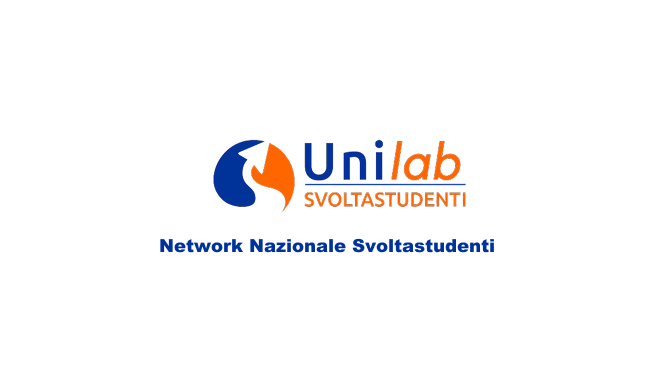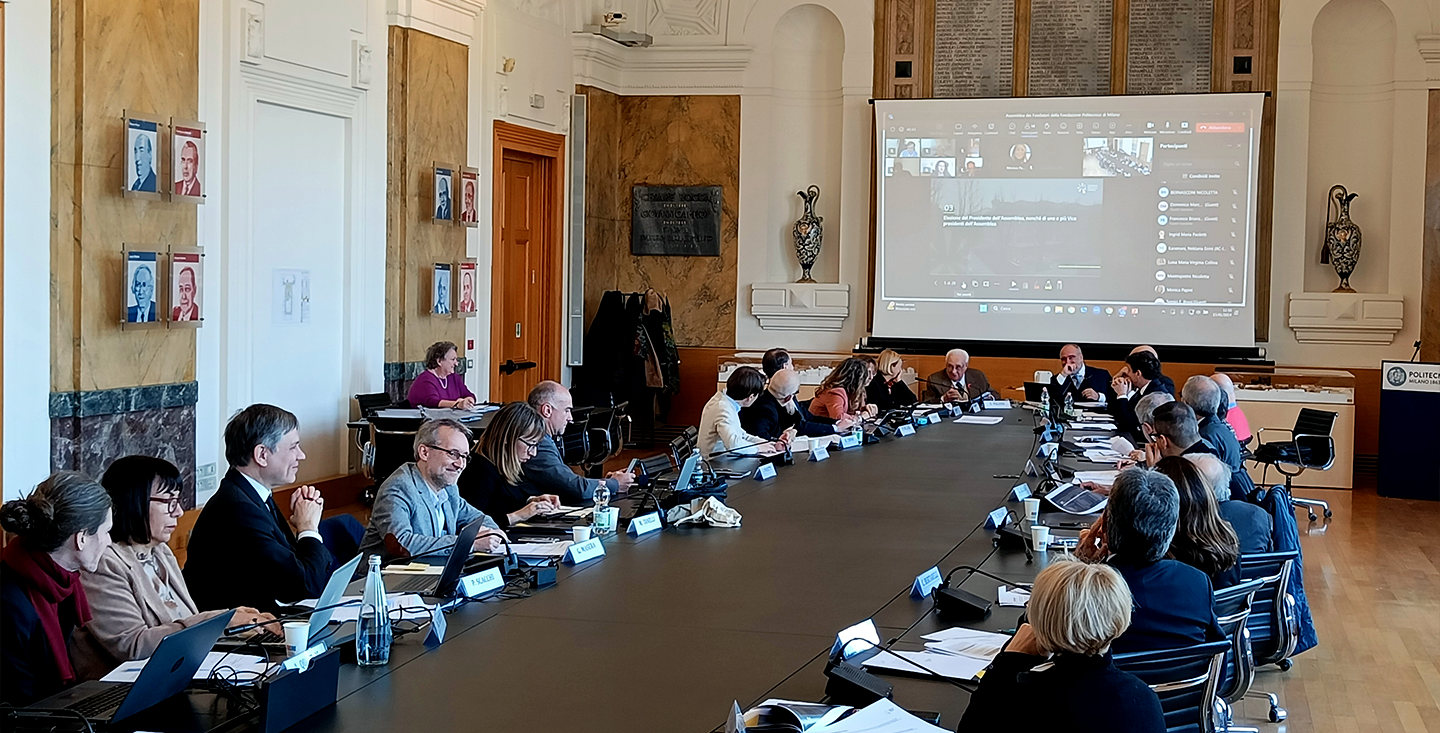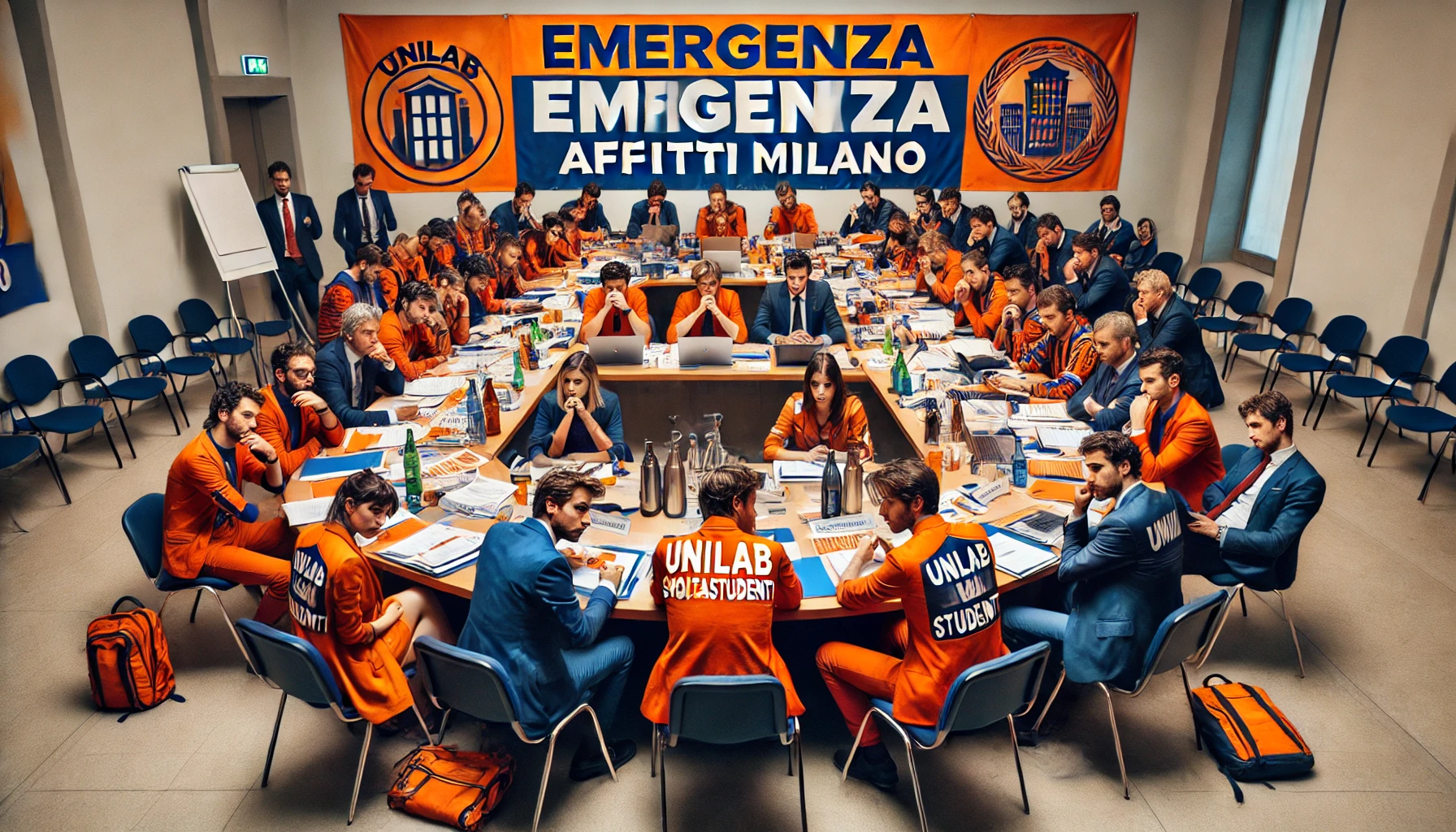We gladly re-share the interview conducted by Carlo Giovani, a third-year student of Civil Engineering and who carried out to the candidates for the position of rector for the six-year period 2017/2022, namely:
- Prof. Cabiddu Maria Agostina,full professor at defined time of the Department of Architecture and Urban Studies and member of the Board of Directors;
- Prof. Guariso Giorgio,full-time full professor of the Department of Electronics, Information and Bioengineering and member of the Reference Council of the Territorial Pole of Como, as well as President of the Course of Studies in Environmental and Geomatic Engineering in the Como office;
- Prof. Resta Ferruccio,full-time full professor of the Department of Mechanics and director of the Department of Mechanics, member of the Academic Senate, member of the Reference Council of the Lecco Territorial Pole, member of the Scientific Committee of the Materials and Construction Tests Laboratory and belonging to the Scientific Committee of PoliFab.
Carlo explained this initiative as follows:
"I decided to put myself to the test with this interview because I think that the topic covered is important and interacts both with the educational field and with the daily life of many students. Moreover, when I inquired about the elections during the past few months, I did not find much material, so I decided to look for it personally".
This is what they answered to the questions proposed on the salient issues of the Polytechnic and on the future developments of the students' lives.
How do you imagine the evolution of the university in the next six years depending on the results obtained so far and the critical issues still present in the University?
Cabiddu Maria Agostina
If we refer to our University, much will depend on the new rector, coming from the top organ the first impulse. If the rector will limit himself to (good) management it will be one thing, if instead he will work to insert "his" policy in the context of that relating to the university and research system of this country it will instead be another story.
This system has, in fact, been in check for a long time. While in developing and emerging countries investments in research are growing despite and because of the crisis and we are betting on the so-called "human capital" and innovation, which mean personal development and economic growth, in our country investments in this direction not only do not grow but even fall and many young graduates and doctoral students go abroad, bringing with them what the State has invested in their training and, above all, the intelligence and skills acquired over time.
These people, having no certainties, leave the country and are well received abroad precisely because of their good training and they are offered contracts and tools that, for the reasons set out above, we are not able to offer.
Even countries, which once defined themselves as developing, have understood the importance of technical graduates (engineers, chemists, physicists, mathematicians but also architects and designers) as a factor of economic growth and overall development
If the new rector is aware of this and, above all, will take charge of making it understood also by the institutions responsible for governing the system, changing the management of the world of research, it can be said that he will have fulfilled the task, which the Polytechnic has always claimed, to be truly leader of the system.
Guariso Giorgio
The University is a very large body and things go on largely by inertia, modifying them is certainly a slow process. In addition, there is a change in society and long-term prospects at a general level, with large phenomena such as, for example, the ageing of the population and job in precariousness, very important changes, which will also have an impact on students.
We must try to have a proactive approach to these changes, take better care of them, rather than just undergoing them, affecting society more, also thanks to our research. As indicated in my program, a social report should be made, demonstrating the significant impact of the Polytechnic on society, which extends well beyond the 4500 graduates.
This obviously must correspond to the 274 million euros that the Polytechnic receives from the State and students. We need to show that it is money well invested, perhaps by focusing more internal research on these big issues.
Moreover, it is hoped, at least in the long run, to be able to have a greater impact on university funding, given that in Italy they have been reduced since 2008 with the excuse of the economic situation, despite the fact that it has been a short-sighted vision, because, if the present situation is not flourishing, all the more so we need to invest more in the future as is done in all other countries. Otherwise you risk going out of business.
Ferruccio Remains
The university in the next ten years will change significantly both in terms of education and research.
The world of research is increasingly competitive, it has become very difficult to acquire resources through calls for research funding. Problems require soft skills. It will therefore be necessary to stimulate multidisciplinary approaches to respond to the great technological and social challenges.
On the other hand, we need innovation in training to allow the student interdisciplinary, laboratory and design moments and international opportunities. We will see a digitalization of the training offer that we will have to evaluate carefully.
It is a long journey that will see us engaged in the coming years, what can be done is to start starting concrete actions in pure Polytechnic style.
What aspects do you see as the main strengths of the University and how can they be further improved?
Cabiddu Maria Agostina
First of all, the ability to do good quality research, both basic and applied, as the international rankings say. But our University is also able to provide good teaching, as evidenced by the fact that the world of work (especially with regard to graduates from the world of engineering and considering that architecture is more exposed to the effects of the economic crisis), national but also international quickly absorbs our graduates.
Higher education, quality of research and internationalization are undeniable strengths of our University, which demonstrates a great ability to attract students and teachers not only from the entire national territory but also from abroad.
Guariso Giorgio
Surely we are the best technical university in Italy, as all the rankings say, and probably one of the best organized. There are, despite this, some aspects lacking, also for economic reasons, and therefore standards that abroad would be considered normal, here, in Italy, they are not (for example the number of m2 per student).
We also have buildings and we still build non-modern and not avant-garde ones, and since we teach how to build them, we should be the first to put into practice what we explain (such as the new building in the Bovisa headquarters and the renovation of via Bonardi in Leonardo's pole).
The same applies to administration: the payment of invoices, for example, must be fast, the practices must be streamlined. To avoid falling back into the saying "preach good and scratch badly". Surely the lengthy bureaucracy does not help, also given the pace with which technology evolves. It is therefore necessary to think of a way of intervening that is flexible, being able to quickly adapt the spaces according to the needs.
Ferruccio Remains
The strength of the University is the people: students, technical-administrative staff and teachers. The real wealth is them, with their ability to face a difficult historical moment and a strong international competitiveness with professionalism, patience and dedication.
Specifically, today the University enjoys a good international credibility, has an excellent national reputation and a very robust education. The employment of our one-year graduates is 90%, with peaks of 97% in some areas of engineering. The returns from the world of work on the preparation of students are very positive. We have a research that competes internationally, we are the first Italian University in the ability to acquire funding from the new European Horizon 2020 program.
We are strengthening our network with companies, which can allow us to acquire important funding and help design national industrial policies with them."
Do you foresee any new incentives for off-site students? New activities or perhaps discounts, for example for public transport or canteens
Cabiddu Maria Agostina
There must be, premising that, in my opinion, one of the negative aspects of the Italian system is the progressive "localization" of universities. Since the Polytechnic does not follow this trend and continues to be a national and, indeed, now international University, it is necessary to allow people who come from all over Italy and the world, being one of the best technical universities, to be able to attend it without economic and social obstacles.
It is necessary to ensure that deserving people, who without financial support would not be able to attend the Polytechnic, can do so equally, meeting families. The social elevator has been one of the springs that have supported the development of the country and before surrendering to the blocking of this mechanism we must make sure that at least the universities work in every way to remove the obstacles, promoting the right to study with all the available resources.
On closer inspection, in fact, even merit is not free from income: if a student has to maintain himself, he cannot devote the same time and energy to study as those who do not have this problem.
Guariso Giorgio
As for the means of transport, we should deal with public transport companies, also for staff, given that the University has many detached offices and therefore the need for people to move between them.
There should therefore be collective subscriptions for the Polytechnic in order to avoid reimbursement practices, obviously studying this resolution and agreeing it with the transport companies. You can therefore think of having additional benefits also in favor of off-site students, in addition to the normal subscriptions that are offered.
The canteen service is also lacking, but it is necessary to identify the correct structure and model on which to invest, perhaps taking advantage of a suggestion from the students, who are obviously the most interested in the topic.
More moments of dialogue within the university with representatives could develop, even after the elections. This is also desirable with regard to the Professors, it would be appropriate to have an opportunity for dialogue perhaps every six months.
Ferruccio Remains
The growth of the Polytechnic's reputation is increasing its attractiveness.
The requests for admissions to master's degrees, also thanks to the 3 + 2, far exceed our reception capacity. The attractiveness of the Polytechnic is increasing and it is therefore necessary to equip oneself to have a greater reception capacity, both national and international.
Added to this is the fact that Milan is experiencing a moment of great vitality, acquired downstream of Expo2015, which make it very attractive.
This is a great opportunity and the University will have to be ready, we are trying to increase the hospitality of university residences, there are already in construction and we will reach almost 3000 places in the coming years.
How do you think we can improve the livability of the residences of the Polytechnic? What services could be implemented? Could the students who live there be more facilitated?
Cabiddu Maria Agostina
I believe that there is ample room for improvement on this front.
Taking as an example the college of Milan, which is inhabited by people from all the Milanese universities, we could propose a series of cultural activities and language courses that can give added value to residents but it is necessary, first of all, to intervene, through a better "income policy" and therefore with a more careful policy of services and public contracts and a fairer progressiveness of the income brackets "for taxes, accommodation, food, transport, so as to really help families to bear the cost of living in Milan.
Guariso Giorgio
The residences also depend on the Region and therefore have additional constraints.
The situation must certainly be studied, but students should highlight the problems they consider important (also considering the fact that the budget of the Polytechnic is quite solid, always having a minimum of surplus that could partly be used to improve something), reporting them to the representatives, taking action for improvements.
The same applies, for example, to the bathrooms and bicycle racks at Leonardo's headquarters, if you received more reports, these problems could be improved more easily, although you can still resort to questionnaires, but the simplest thing is to receive reports from those who every day find themselves having to deal with problems.
Ferruccio Remains
The theme of livability is an important theme in general for all campuses. Internationalization is not only done by attracting foreign students in our master's degrees, but by offering services and quality of life within the university path, comparable to the international universities with which we want to compete.
In my program I have planned a project aimed at improving the quality of the spaces, enhancing study areas, socialization areas, faculty areas, sports equipment and greenery.
Of course, the residences are an important part of this project: we have already mentioned the new residences, both in Milan and in the territorial poles.
Alongside the new investments, continuous maintenance and adaptation to current residential standards are needed.
The quality of services is a primary objective especially for off-site students, who do not have a network of acquaintances in Milan.
I would like to start virtual bulletin boards for sharing, which allows you to share capital goods, sports, furniture, homes and availability.
The ultimate goal is that the years spent at the Polytechnic remain indelible, not only for the hours spent on the books, but also for the activities and life within the University.
What will be the evolution of internationalization projects?
Cabiddu Maria Agostina
It is necessary to think carefully about the criteria for student access and the tools of attraction of teachers and to create a network of academic relationships with high-level foreign universities.
It is necessary to avoid passively submitting to the international rankings, which means that we must pretend to contribute to establishing the evaluation criteria, in order to be able to play on equal terms with our competitors.
If the rankings adopt criteria designed for the American system, it is easy for American universities to be at the top of the rankings. We have the duty to bring out other profiles to evaluate universities, participating more in establishing the criteria and we must in any case avoid the psychological subjection we have towards the Anglo-Saxon countries, starting with the obsessive attention to the rankings: these must be considered a tool not the end of our activities.
Moreover, I do not think we do (good) internationalization, simply forcing to speak in English, regardless of a serious assessment of the language level (starting with teachers who must master the language in which they teach in order not to lower the level of their teaching) and without considering that, from a legal point of view, the obligation to use a certain language (other than the official one) inevitably ends up interfering with the freedom of the doc body, ultimately responsible for what it teaches and how it teaches.
In doing so, we arrive, in reality, to limit even the freedom of learning, placing itself in contrast with Articles. 33, 34 and 3 of our Constitution.
I am not sure that the obligation to teach in English is the only way to attract students and teachers from abroad, On the contrary, we must be able to attract especially those who come to Italy to immerse themselves in the culture of our country and to add something to their cultural baggage. As mentioned before, we must seriously rethink the criteria for the admission of foreign students, also in order not to risk lowering the level towards other students.
A seriously international University has the duty to keep what it promises: good training and good research, which imply rigorous selection tools also with regard to (all) students. Finally, we call foreign teachers who, however, have the "damned" vice of demanding standards of "engagement" (salaries, staff, office, research facilities, any benefits, etc …), which we – for ourselves – do not even dream of.
If we fail to guarantee these standards, we cannot expect that beyond sympathy and friendship for us and for our country, foreign colleagues become seriously part of our Faculties… perhaps they will come to visit, for a few weeks: excellent thing but still too little to talk seriously about internationalization.
Of course, if this could also serve to make us aware of the value of the University and research, that necessary change to which I referred at the beginning would become further necessary and urgent … the new rector will have to take all this into account: an undertaking to shake the veins on the wrists, as I wrote in my program.
Guariso Giorgio
These projects must continue, because they are one of the riches that are provided to students. With foreign teachers it has not been possible to be attractive enough, not being able to offer resources comparable to those of other countries. We must therefore find some other way than to give more money, which would create disparities with Italian professors.
For foreign students it is necessary to put more effort than what has been put so far, I know from experience that they have many needs extremely different from those of Italian students and that they must be helped to face them from the beginning. Not only the residence permit, but also how to take the exams, how they are evaluated, how the courses are set.
We use a different model based mainly on theoretical lessons, which we will certainly not be able to carry on for long, since students need laboratories and other activities.
In fact, we have a very conceptual approach, which lends itself well to being taught ex cathedra, but we risk having students who have a little more difficulty in entering the world of work, having never seen in practice the disciplines they study.We must be able to change this approach without losing our conceptual method, which everyone evaluates very well, since then when students go abroad we notice that they are more prepared than the others. We have this great advantage of having a very deep, solid tradition of conceptual analysis, which should be updated using more modern teaching tools.
Ferruccio Remains
The Polytechnic has started an international program on strategic objectives.
In China we have focused our attention and efforts on three four strong alliances, well characterized, also from a disciplinary point of view. In Europe, in addition to the continuous and countless relationships that we now have with all the universities, we have a program called Alliance4tech, which is a possibility that we offer our students to do an Erasmus in the four capitals of Europe (Milan, London, Paris and Berlin) and IDEA League, which represents the network of the best technical universities with which we can compare ourselves in a more significant way, network in which we have recently entered and which in some way will allow important comparisons on the evolution of research and university education.
To move from a geographical policy of internationalization to a policy with objectives, there are some countries, such as Iran or South America, where you can go with companies or Africa where interesting actions of academic cooperation are possible. It will be possible to include in these projects students from these countries and who can therefore also give added value to internationalization projects.
Interesting developments may also come from Japan, Korea and India or finally the United States and Canada, where it is always difficult to enter but in which we will be able to verify the interest in developing initiatives in Milan.
Milan, 28 October 2016
We close this interview by wishing our best wishes to the very valid candidates and thanking Carlo for the beautiful initiative and the commitment made!




